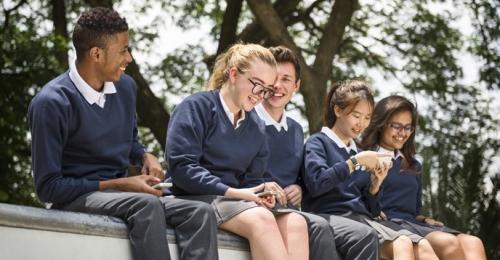UN urges Comprehensive Approach to Sexuality Education
A fully updated International Technical Guidance on Sexuality Education published by UNESCO advocates quality comprehensive sexuality education to promote health and well-being, respect for human rights and gender equality, and empowers children and young people to lead healthy, safe and productive lives, on January 10.

“Based on the latest scientific evidence, the International Technical Guidance on Sexuality Education reaffirms the position of sexuality education within a framework of human rights and gender equality,” says UNESCO Director-General Audrey Azoulay. “It promotes structured learning about sexuality and relationships in a manner that is positive and centred on the best interest of the young person. By outlining the essential components of effective sexuality education programmes, the Guidance enables national authorities to design comprehensive curricula that will have a positive impact on young people’s health and well-being.”
The Technical Guidance is designed to assist education policy makers in all countries design accurate and age-appropriate curricula for children and young people aged 5 – 18+.
Based on a review of the current status of sexuality education around the world and drawing on best practices in the various regions, the Guidance notably demonstrates that sexuality education:
● helps young people become more responsible in their attitude and behaviour regarding sexual and reproductive health
● is essential to combat the school dropout of girls due to early or forced marriage, teenage pregnancy and sexual and reproductive health issues
● is necessary because in some parts of the world, two out of three girls reported having no idea of what was happening to them when they began menstruating and pregnancy and childbirth complications are the second cause of death among 15 to 19-year olds
● does not increase sexual activity, sexual risk-taking behaviour, or STI/HIV infection rates. It also presents evidence showing that abstinence-only programmes fail to prevent early sexual initiation, or reduce the frequency of sex and number of partners among the young.
● The publication identifies an urgent need for quality comprehensive sexuality education to:
provide information and guidance to young people about the transition from childhood to adulthood and the physical, social and emotional challenges they face.
tackle the challenges posed by sexual and reproductive health issues, which are particularly difficult during puberty, including access to contraception, early pregnancy, gender-based violence, sexually transmitted infections (STIs) and HIV and AIDS
raise awareness of HIV prevention and transmission, of which only 34 per cent of young people around the world can demonstrate accurate knowledge
complement or counter the large body of material of variable quality that young people find on the internet, and help them face increasingly common instances of cyberbullying.
The Guidance was produced in collaboration with UNAIDS, United Nations Population Fund (UNFPA), United Nations Children’s Fund (UNICEF), UN Women, and the World Health Organization (WHO).
Source: United Nations Educational Scientific and Cultural Organization
- 455 reads
Human Rights
Fostering a More Humane World: The 28th Eurasian Economic Summi

Conscience, Hope, and Action: Keys to Global Peace and Sustainability

Ringing FOWPAL’s Peace Bell for the World:Nobel Peace Prize Laureates’ Visions and Actions

Protecting the World’s Cultural Diversity for a Sustainable Future

Puppet Show I International Friendship Day 2020

